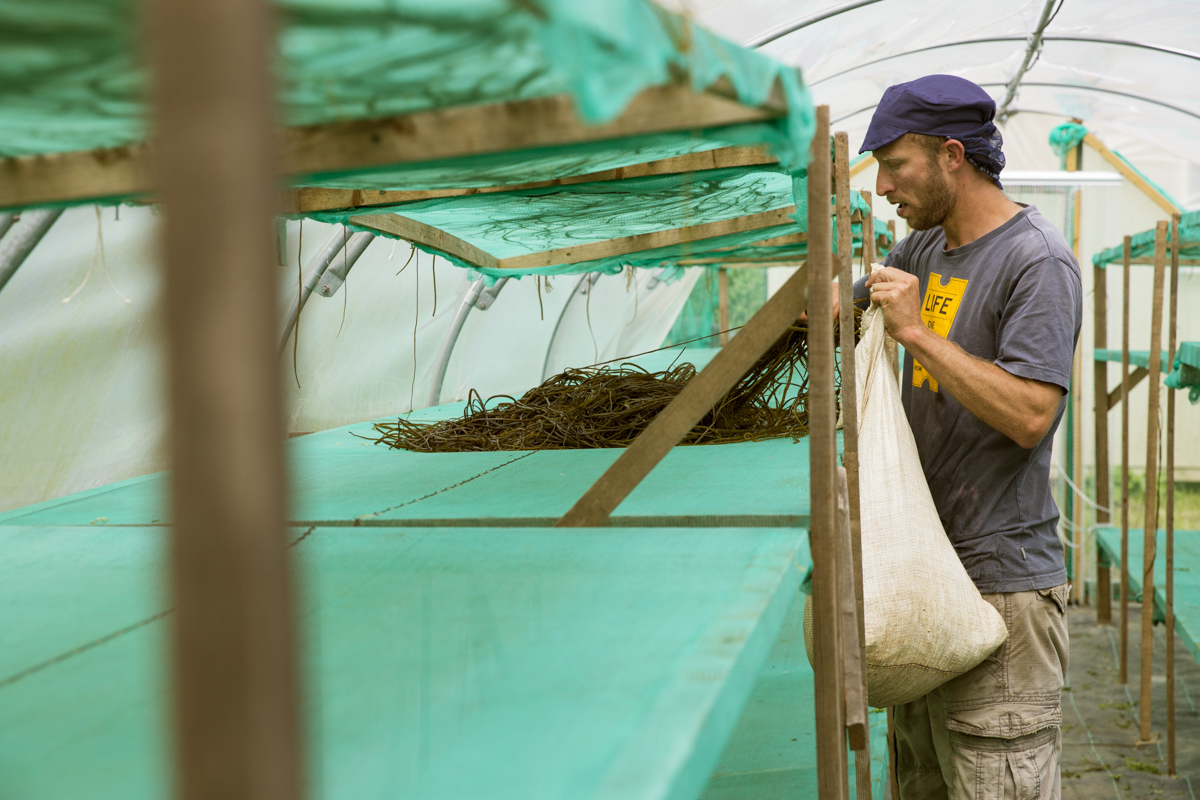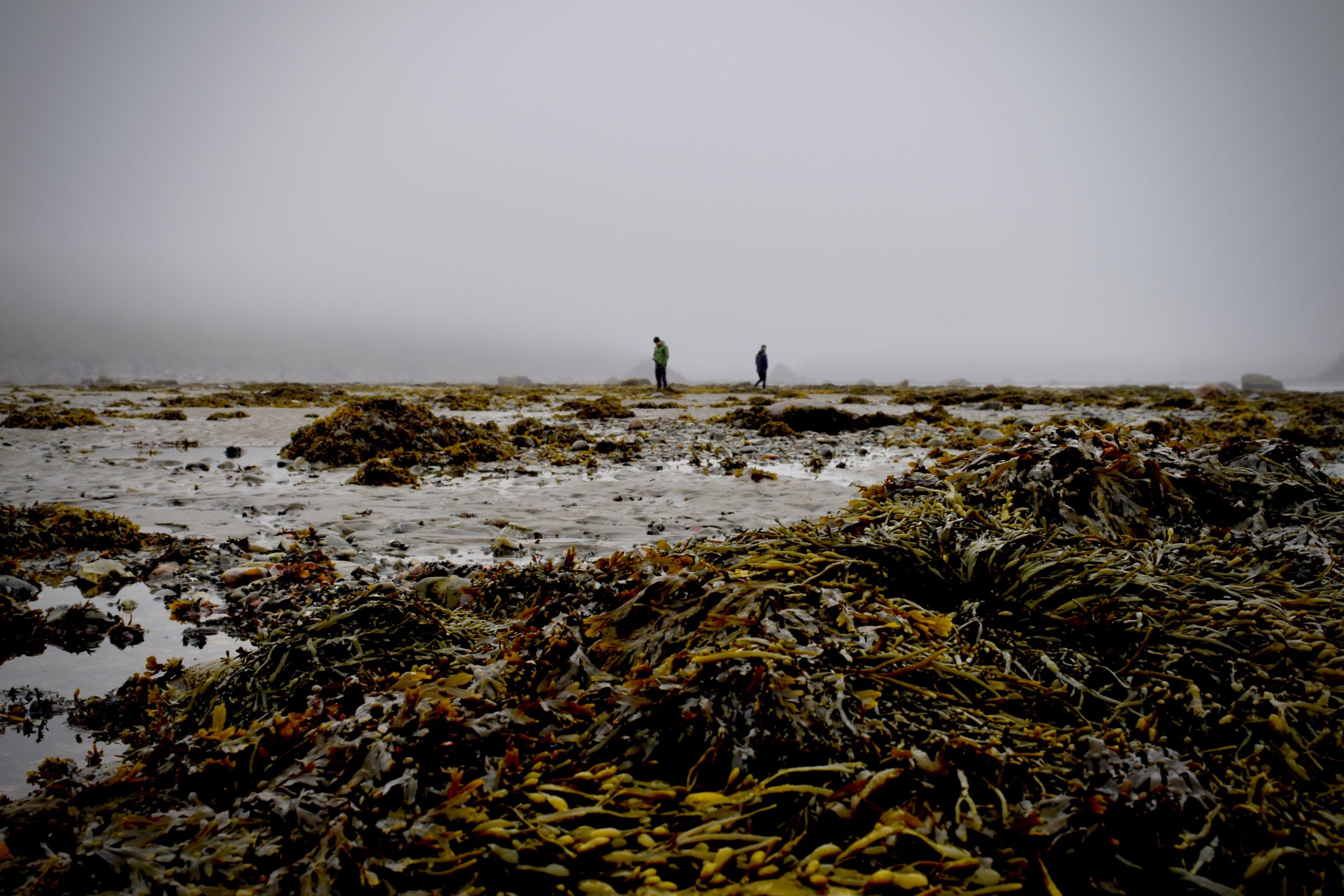
Environment /
The challenge? Getting the word out there and facilitating the process. You see, seaweed has the ability to combat climate change by regenerating marine ecosystems, absorbing carbon emissions, and creating biofuel and renewable plastics. That’s not to mention it’s power as a renewable food source, too, and the regeneration of local infrastructure and jobs – the sustainable social impacts could be huge.
Given that there are so many concerns over our global consumption of meat and the environmental impact of continuing to eat meat, seaweed could be a significant turning point. It’s a source of protein and packed full of nutrients, so when it comes to eco-friendly, nutrient rich food sources, seaweed could be the one. If seaweed can start being used as and seen to be an everyday and usual food fix, it’ll have hugely positive effects on the outcome of our planet. The seaweed to food movement is massive, and holds giant potential. Not only is it a great protein source and meat substitute, but it’s a way to pioneer the positive effects of eating lower on the food chain.

In fact, a study by Yale University on how ‘third way’ technologies can help to turn the tide on climate change, highlighted that there is ‘one study [that] suggests that if you cover 9 percent of the world’s oceans in seaweed farms, you could draw down the equivalent of all our current emissions – more than 40 gigatons a year – and grow enough protein to feed a population of 10 billion people. That’s a huge opportunity.’
Another study by Yale showed the following: ‘Plants in the ocean, from seagrasses to plankton, add up to just 0.05 percent of the plant biomass on land, but are so pervasive and efficient at sucking up carbon that they cycle through roughly the same amount of carbon every day as all the land-based plants. Yet seagrass ecosystems are being wiped out, thanks to everything from pandemic disease to water pollution and coastal construction projects.’
In an article we featured recently about the humble sibling to seaweed, seagrass, Evie Ramirez highlighted that ‘these productive plants work as filtering systems for coastal waters, helping to keep them clean by soaking up nutrients and bacteria. They also provide coastal defence against rising sea levels and erosion by stabilising sediment and reducing wave and tidal energy.’
But seaweed holds even more power than seagrass. The key difference between the closely related species is that seaweed is a macroalgae, whereby particles will be exported out to sea where the carbon can be sequestered. Unlike seagrass, seaweed doesn’t have roots, so the carbon from macroalgae is stored away from the shore, it’s less likely to be disturbed and returned to the atmosphere. Researchers at Harvard have found that seaweed is, in fact, the most effective natural way of storing carbon emissions away from the atmosphere.

Crucially, seaweed farms also allow important resources for the growing demand for change in the fashion industry. Recently, New York designer Charlotte McCurdy created a seaweed raincoat. Concocting the creation of this in a laboratory, before teaming up with the renowned designer Phillip Lim, Charlotte wanted to plant a seed of hope in the fashion industry and show that, although material development is slow, we can all step in and do our part. Her focus now is on forming an innovation, helping people to recognise that we don’t have time on our side, and utilising the resources that will ultimately become available from seaweed farms across the globe.
But, as this article for Time states, though: ‘For the industry to scale, Druehl says, governing bodies—both national and international—as well as private companies have to make major investments to help the industry get its feet off the ground.’
One such company that is making waves is SeaGrown, situated on the Yorkshire Coast. With support from the Coastal Communities Fund, they are establishing a seaweed farm in the clean, cold, open waters of the North Sea. ‘Our pioneering seaweed farm will ethically produce a sustainable crop which British customers and Industry can use in lots of innovative ways – from biodegradable plastics to a new source of pharmaceuticals, cosmetics, textiles and biochemicals,’ they say. We also produce our own fantastic range of seaweed food seasonings which are a great way of adding serious flavour to all your food with the nutritional boost of SeaGrown seaweed. Most importantly of all, our super-seaweed crop just needs the sun and the sea – no chemicals, fresh water, power or even land.’
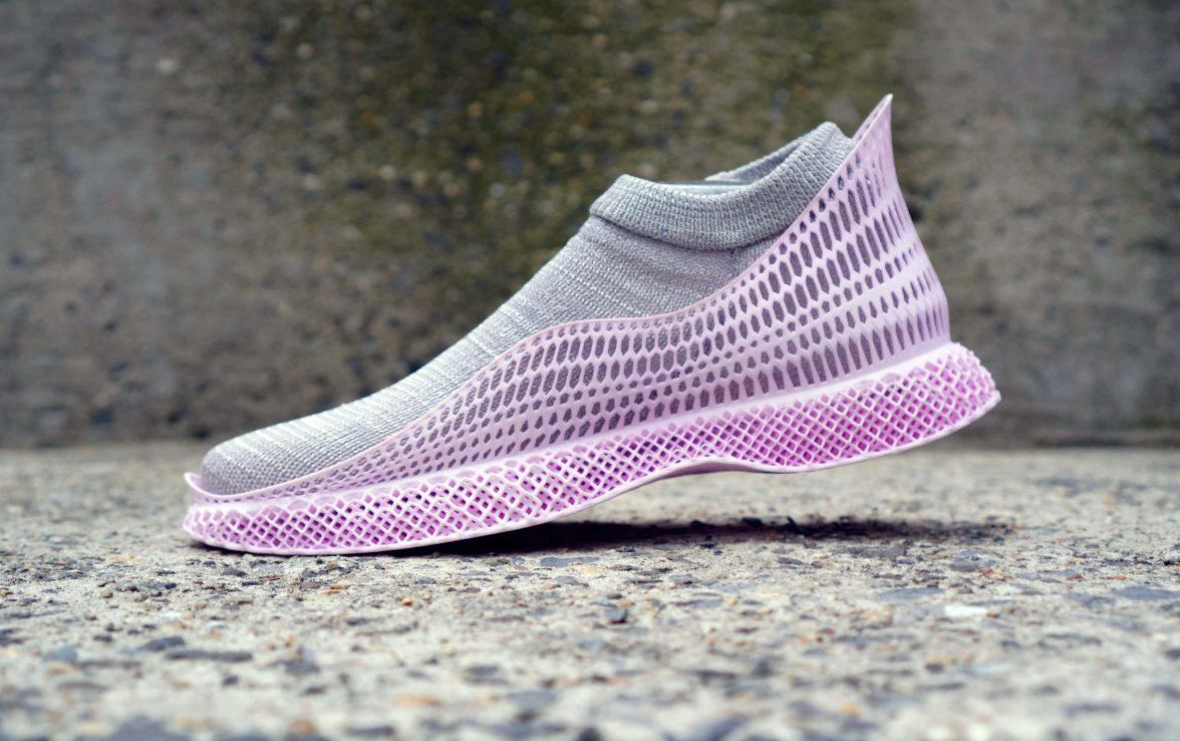
AlgiKnit is creating eco-conscious, renewable yarns for the circular economy out of seaweed. They are developing durable yet rapidly degradable yarns from one of the most regenerative organisms on the planet.
Kelpn is striving to make a fully-compostable and environmentally friendly packaging from seaweed, in the hope it provides a soft plastic alternative.
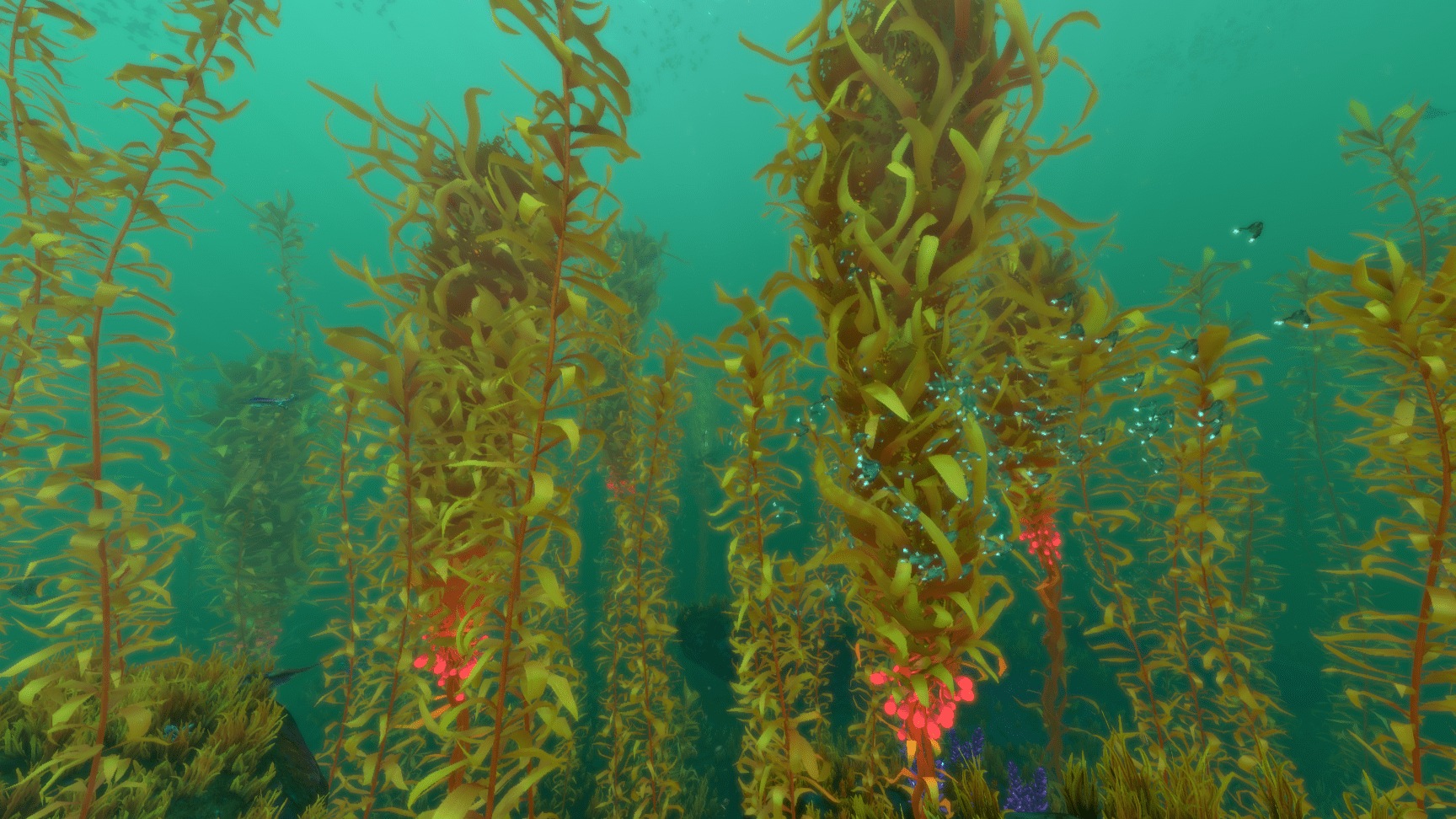
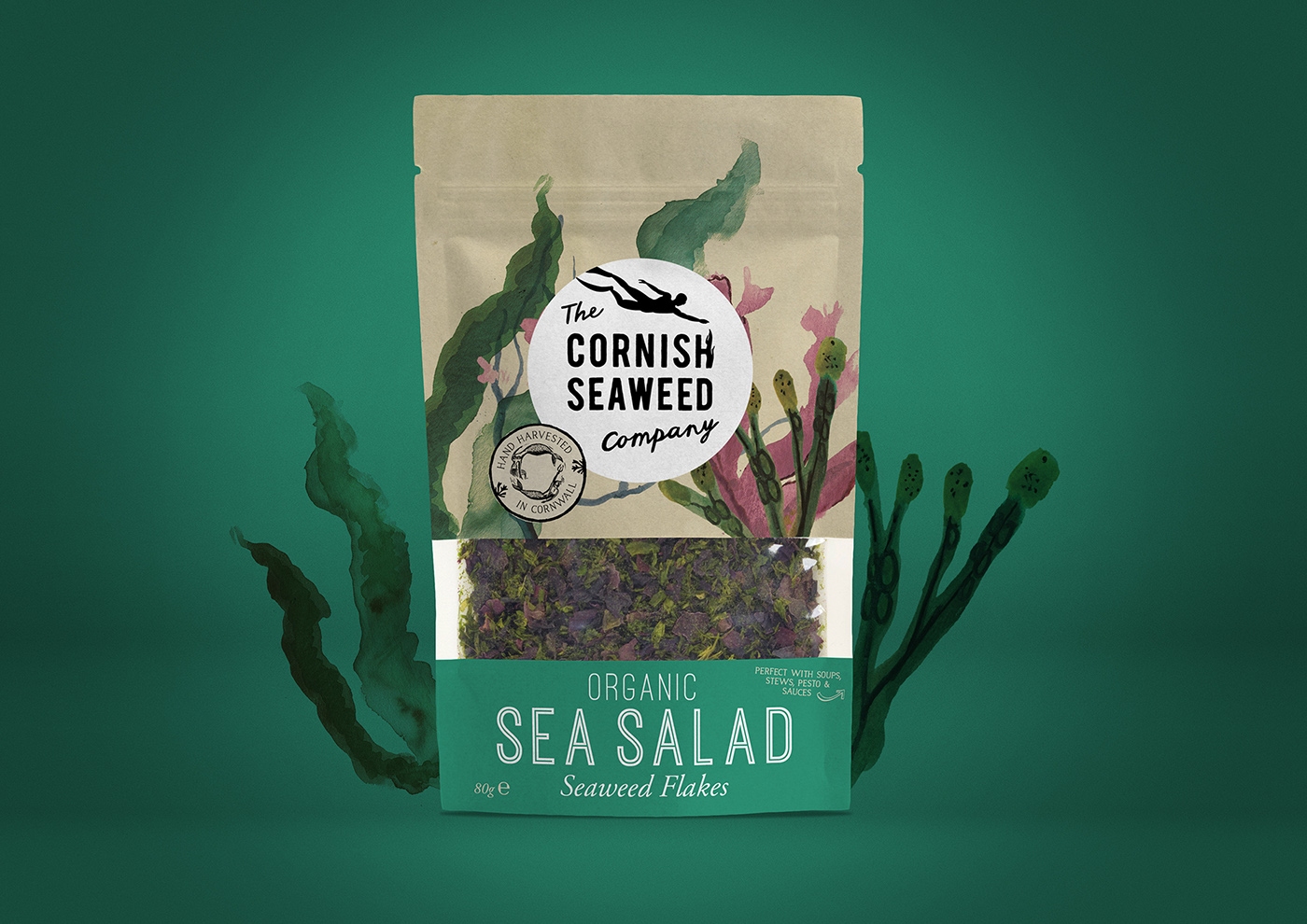
This small team of passionate seaweed foragers based on West Cornwall’s rugged coast offer a range of 100% organic seaweeds for use in everyday cooking. Their seaweed recipes can be found in their newly launched Seaweed Cookbook, on their Recipe page as well as on each and every pack to help ignite your creativity in the kitchen! Check out it here.
A UK-based company making t-shirts from seaweed and pioneering the process. To read more about it, head over to our feature with the founder. Discover here.
